- Home
- Jason Pinter
Hide Away (A Rachel Marin Thriller) Page 6
Hide Away (A Rachel Marin Thriller) Read online
Page 6
“I watch a lot of Law & Order. Olivia Benson is my spirit animal.”
“Cut the crap,” Serrano said. “You could have walked into the station and asked to speak with me. You made us chase you for a reason.”
Rachel looked into her coffee mug. “Somebody once told me I would have to make a choice,” she said. “I could help people or just live my life. I made the wrong choice once. I swore I wouldn’t do that again. Constance Wright was murdered. And her killer wanted us to believe she killed herself. Think about that. They took her life and wanted her buried in shame too. That’s beyond cold. That’s diabolical. I know about her ex. Her family. The lawsuits. But surely there were people who loved her.”
Rachel’s head jerked up.
“That,” Rachel said, pointing at Serrano. “Your lip just twitched when I said there were people who loved her.”
“It did not,” Serrano said.
“When I said that people loved her . . . that struck a nerve. Tell me why.”
“I think you’re forgetting the fact that you’re a civilian, Ms. Marin,” Serrano said. “You have no legal authority. We have no obligation to answer any of your questions.”
Rachel stared at Serrano.
“She was pregnant,” Rachel said. “Wasn’t she?”
“That’s enough,” Tally said. She stood up from the table. “Ms. Marin, you are not a part of this investigation. But if this ever goes to trial, you might be asked to testify. If your calculations are correct, it may help us prove the manner in which the victim died.”
“Not if they’re correct, Detective,” Rachel said. “They’re correct.”
“And if this was a homicide,” she continued, “we’ll be the ones to bring the perpetrator to justice.”
Detective Serrano stood up as well. He dropped thirty dollars on the table and said, “Finish your coffee. If you’re still thirsty, buy yourself a beer. Apologies again for ruining your date. Thank you for your time, Ms. Marin.”
The detectives left the diner. Rachel downed the rest of her coffee, grabbed her purse, and followed them. The parking lot was slick with ice. Rachel had to walk tentatively in her heels.
“Tell me one more thing,” Rachel shouted. Serrano and Tally continued toward their brown Crown Victoria.
“Go home, Ms. Marin,” Serrano said.
“Was she drunk?” Rachel shouted. She noticed a hitch in Serrano’s step as he took out his car keys.
“Why?” Tally said.
“Call it a hunch. And I can tell from your hesitation that she was. What was her blood alcohol level?”
“Ms. Marin,” Tally said, “that has not been releas—”
“Point four three,” Serrano answered. Tally shot him a look.
“That’s crazy high,” Rachel said. “At a blood alcohol level of point three, her speech, balance, and coordination would have been severely impaired, and she may have lost consciousness. A woman her size, her motor skills would have been diminished, and her heart rate and breathing would have slowed to dangerous levels. At point four, there’s no way she would have been able to even get to the bridge, let alone throw herself over it. I would check her teeth if I were you.”
“Her teeth?” Tally said.
“See if any of her teeth are sheared, most likely front teeth, her incisors. They would look like an ice cube split by a pick. Any teeth broken from the fall would be pulverized, like a pretzel stomped on by a shoe. What I’m talking about would be a much cleaner cut.”
“Why . . . ,” Serrano began to say before catching himself.
“Because with a BAC at that level, plus a tooth with that sort of damage, it would indicate that she was force-fed alcohol shortly before her death. They may have even continued pouring it down her throat after she lost consciousness. Somebody wanted to make sure Wright was fully unconscious but didn’t want any tranquilizers or drugs in her bloodstream that could raise questions on a tox screen. Plus the abundance of alcohol could bolster the suicide theory. But whoever killed her overdid it. This was deliberate. And it was planned.”
The way Serrano looked at Tally, it confirmed to Rachel that they’d found such a chipped tooth during the medical examination.
The detectives got into the car. Rachel jogged up to the passenger side door, where Serrano was seated. She noticed a paperback copy of The Fellowship of the Ring on the dashboard. She pointed at it.
“My son loves those books,” she said. “He practically speaks Orc.”
Serrano offered a smile. It was genuine and wide and threw Rachel off.
“So does mine,” he said. Tally looked at Serrano with a hint of confusion. Something passed between them that Rachel picked up on.
Then they drove off.
Her cell phone chirped with an incoming text. She took out her phone, looked at the message. It was from Adam.
Ur forgiven. Lucky 4 u I’ll give u another chance, but only b/c ur
And then he added a fire emoji.
Rachel groaned, shoved the phone back in her purse, got in her car, and headed home. She had a sudden urge to hug her kids.
CHAPTER 8
Three Years Ago
The knock at the door made Rachel’s head swivel in the direction of the shotgun locked in her bedroom safe. In less than a second, her pulse went from its resting rate of fifty-eight beats per minute to nearly eighty.
She stood in the kitchen, a bag of groceries in her hand, waiting. The person knocked again. Rachel gently placed the bag down and immediately estimated how much time it would take to grab the kids, grab the shotgun, and flee.
She inched around the kitchen wall to get a view of the window overlooking the front door. Her visitor was a woman. She could not see her face, but Rachel’s pulse returned to normal. None of his followers were women, as far as the FBI knew. Just a local busybody, most likely. A neighbor to welcome them to Ashby with a fruitcake and an invitation to the next PTA meeting.
Just a visitor, she told herself. Plus, it was only five o’clock. It was still light outside. This woman was not attempting to hide anything. But just in case, Rachel slipped a pair of scissors into the back pocket of her jeans.
“Mom?” Eric was in his room. His voice was nervous, scared. Rachel could count the number of people who’d knocked on their door since they’d arrived in Ashby on one hand. Maybe even one finger.
“It’s all right, hon,” she said, her voice calm and even. More for him than her. “I got it.”
Rachel peered around the edge of the curtain and saw a woman standing alone on the front step. She was in her late thirties, trim, brown hair tied in a neat bun, her cheeks with a slight rouge tint. She wore a gray blazer over a white blouse with a black skirt. A classy string of pearls was looped around her neck, and her diamond earrings were small yet elegant. Her posture was impeccable, the look on her face patient and pleasant. Rachel figured she was either a Jehovah’s Witness or selling Amway.
Rachel took a breath, placed her left hand on the handle of the scissors, and opened the door with her right. The woman’s smile grew wider.
“Ms. Marin,” she said, holding out her hand. “It’s a pleasure to meet you. My name is Constance Wright. I’m the mayor of Ashby.” She held out a bottle of wine wrapped in yellow paper. “Chardonnay from my father’s vineyard.”
Rachel took the wine and closed her jaw. She knew nothing about the woman’s politics, policies, or background. In fact, she had no interest in anything other than surviving. But for some reason, the mayor was standing at Rachel’s door.
“Rachel,” she said. “Nice to meet you, Ms. Mayor. Or Mrs. Mayor. Or Ms. Wright. What do I call you?”
Wright laughed sincerely. “You can call me Constance. May I come in?”
Rachel hesitated for a moment, then motioned for Wright to enter. The mayor took off her shoes and placed them gently by the front door.
“New carpeting,” she said, sniffing the air. “Don’t want your rug to smell like the campaign trail.”
“And what exactly d
oes a campaign trail smell like?” Rachel asked.
“Money and insincerity,” Wright replied with a wicked smile. She looked around. “You have a lovely home.”
Rachel laughed. “If we ever finish unpacking, we will.”
“Take your time. Although that chardonnay goes perfect with unpacking.”
“So are you here to . . . ,” Rachel said delicately, “campaign?”
“No, no. Though I do try to meet all my constituents, I know your family is new to Ashby, and, well, I just wanted to come by and see how you all were settling in.”
Rachel heard soft footsteps approaching, and they both turned to the stairwell. Eric stood at the top, hand gripping the banister so hard his fingertips were white.
“Eric, am I right?”
Eric nodded.
How did she know that? Rachel’s hand went back to the scissors.
“Well, Eric, my name is Constance, and I’m just here to see how your family is settling in. Are you liking it here so far?”
Eric nodded imperceptibly but did not take his eyes off Constance Wright.
“Constance is the mayor,” Rachel said. Eric’s eyes widened, but he remained silent. Then he went back to his room.
“And if I’m correct, you have a little one too. Megan, right?”
Rachel nodded.
“How old?”
“She’s four,” Rachel said. “Do you have any children, May . . . Constance?”
“Not just yet. But one day, if Nicholas and I are so lucky.” Wright smiled, but Rachel could detect a twinge of sadness. Something told Rachel the question had hit a nerve. The mayor wanted children, but perhaps infertility, an unsupportive spouse, or another factor had prevented it.
“Can I offer you something? Coffee or tea?” Rachel prayed she would decline.
“No, thank you,” Wright said with a smile. “Trying to cut back on my caffeine.”
“Well then, we appreciate you stopping by, Constance,” Rachel said. She eyed the door and hoped Wright would pick up on the gesture.
“Of course. Two kids, I can imagine how busy you are,” Wright said, walking back toward the front door. “Like I said, it’s very important for me to meet my constituents.”
“Well, now we’ve met.”
Wright nodded. “Yes, we have. Did you know we have a friend in common?”
“Is that so?”
“Jim Franklin. At Franklin and Rosato, in Darien.”
Rachel’s heart rate blasted to over a hundred beats a minute. She felt a cold shiver at the nape of her neck. Her body went rigid.
“Don’t be alarmed,” Constance said softly. “In fact, the opposite. The real reason I came by today is to let you know that you’ll be safe here.”
“I’m sorry?”
“Jim Franklin contacted the FBI field office in Springfield several months ago. That office oversees the western part of the state, which includes Ashby. The FBI briefed me as soon as you made an offer on this house.”
“I . . . I don’t know what to say.”
“You don’t need to say anything. But we protect our own in Ashby. I know what your family has been through. You have my office’s resources at your disposal. And if you ever need anything . . . anything . . . call my personal cell phone.”
Wright handed Rachel her card. Rachel took it, her hand trembling. A phone number was scrawled in black ink on the back.
Rachel’s lip trembled. A tear formed in the corner of her eye.
Wright placed her hands on Rachel’s shoulders and squeezed gently. “You’ll like it here. And I’ll tell you what. I have a fund-raiser coming up in a few weeks at Rhinebeck Hall. I don’t want a penny from you. But this is a great way to meet people. To be a part of the community. I have a feeling that it’ll be good for you. Have a few drinks. A laugh or two. A reason to get dressed up. My office will send over the details.”
“Th . . . thank you, Ms. Wright.”
“Constance,” she said, opening the door. “Give my best to Eric and Megan. They’re lucky to have you as a mother.”
“Thank you,” Rachel said. She noticed Wright’s hand. “That’s a lovely ring.”
Constance held up her left hand. Adorning her index finger was a silver ring with a large topaz gemstone in the center.
“My father gave this to me when I got married. He told me Nicholas’s ring was for love, and this one was for family. I feel complete when I wear them both.”
“It’s gorgeous.”
“Thank you. Take care, Ms. Marin.”
“Call me Rachel.”
Constance smiled warmly. “I hope to see you soon, Rachel.”
Then she left.
As the door slammed shut, Rachel let out a massive sob and wiped her eyes.
She watched Constance Wright climb into a silver Mercedes C-Class. Wright lowered the window and waved back at Rachel, the brilliant topaz gemstone glistening in the spring sun.
CHAPTER 9
Today
“How was the date?” Liesl asked with the wide-eyed naive smile of a high schooler who likely assumed every first date led to marriage.
“Very surprising,” Rachel said.
Liesl giggled, rubbed her hands together, and made an eeeee! noise that could have shattered glass. Rachel thanked her babysitter, gave her an extra ten dollars, then marched straight into Eric’s room. She wrapped her arms around her son, startling him. He tried to shake her off, but given that they both knew she was the stronger of the two, he simply let her finish.
“You done?” he said.
“Yes,” Rachel replied. “Sometimes moms just need a hug.”
“Well, you got one. Now let me study.”
Rachel kissed him on the cheek before he could shoo her away and then went into Megan’s room.
Her gorgeous daughter was asleep. A pile of pages lay scattered on the floor—more of her Sadie Scout story. Rachel moved a tangle of hair away from Megan’s mouth and gently placed her hand on her daughter’s chest, feeling it rise and fall with each breath.
When Eric was born, he’d spent sixty-four days in the NICU before the doctors permitted him to go home. For six weeks he required a gastronomy tube, which fed directly into his stomach through his abdominal wall until he was strong enough to feed. The scar was still visible on Eric’s stomach. Faint, but a reminder to Rachel how delicate he once was. When they brought him home, Rachel sat by his crib every night for six months just to make sure he was breathing. She would place a small makeup mirror in front of his nose and hold her breath, waiting for it to fog.
Megan was easy. She was born two days past her due date, at a whopping nine pounds, seven ounces. She was the picture of health from day one.
A perfect daughter. A perfect son. A happy marriage. Their family was complete.
And just six months later, it all came crashing down. Four perfect lives shattered in a single unforgiving moment.
There were monsters out there. That lesson had been forced upon Rachel. It had also made her learn the hardest, most valuable lesson there was in life.
You’re on your own.
And now, right here in Ashby, this sleepy little city, another monster had arisen. Constance Wright was dead. Rachel didn’t know why. Not yet.
After Constance Wright had come to her home, Rachel had learned everything she could about the Wright family. They had been Ashby royalty, their names practically synonymous with the town. Once.
For years, the name Wright was plastered on schools, libraries, and hospital wings. But then those respectable establishments all washed their hands of the Wrights, scrubbed the name from their walls and plaques. They kept the money the family had donated, of course.
Constance’s grandfather, Eugene Wright, was born in Ashby and founded the Wright Development Corp., which developed middle-class housing projects all across the Midwest. Constance’s father, Cameron, leveraged the money Eugene made on Wall Street, buying him powerful connections in government and finance. They were on their w
ay to becoming the Kennedys of the Midwest.
Constance graduated from Harvard with a degree in political science and then went to Yale Law before returning to her family’s home in Ashby and winning a seat on the city council at just twenty-nine. Four years later she was mayor, bolstered by a $4 million campaign funded in large part by her family’s associates in construction. Louis Magursky of Magursky Construction spent half a million alone to blanket the airwaves with attack ads on the sitting mayor, poor Randall McGovern, a sixty-eight-year-old with thinning hair and the charisma of a comb, who was no match for Constance’s work ethic, enthusiasm, humor, and deep pockets.
Constance was young. Smart. Attractive. Idealistic. Funny. Passionate. Genuine. And was poised for greatness.
Mayor Wright. Governor Wright. Senator Wright. And beyond. Ashby was the perfect place for Constance to cut her political teeth. After all, it wasn’t long ago that the mayor of a small city in Alaska came within a hair of the White House.
But during Constance’s second term in office and about a year before Constance’s visit to Rachel’s home, the ACLU sued Wright Development Corp. Six black employees claimed Eugene Wright had regularly used racist language in their presence, and soon after that seven women came forward with claims of sexual misconduct. There were tapes. And Eugene Wright was ruined.
The suit was settled out of court for millions, Eugene Wright suffered a stroke, and the company was sold for pennies on the dollar to a development firm that absorbed the company’s assets and scrapped its name.
Soon after, Cameron Wright was arrested in the South Bronx in the bed of an underage prostitute. Constance’s mother, Candice, went to clean him out in the divorce only to find that Wright Development Corp. was in debt eight figures to dozens of vendors. Magursky Construction was in the hole for $6 million alone. Zwinter Electric, $3 million. Creditors picked apart what was left like vultures on a fresh carcass.
Cameron Wright hanged himself in prison. Candice Wright died in a car accident a year later. Cable news hosts tossed around conspiracy theories about their deaths.
Before the scandals, Constance Wright’s approval rating was floating in the high sixties. But the muck from her family’s scandals began to spatter. And then it got worse.

 Hide Away (A Rachel Marin Thriller)
Hide Away (A Rachel Marin Thriller)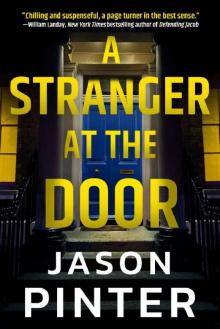 A Stranger at the Door (A Rachel Marin Thriller)
A Stranger at the Door (A Rachel Marin Thriller)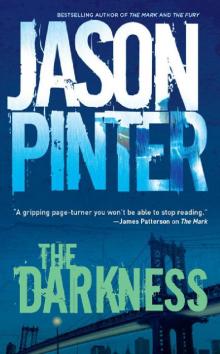 The Darkness hp-5
The Darkness hp-5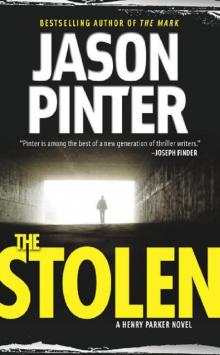 The Stolen hp-3
The Stolen hp-3 The Guilty hp-2
The Guilty hp-2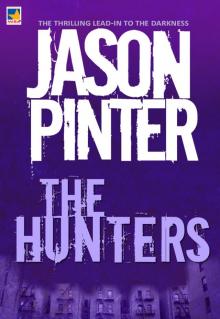 The Hunters
The Hunters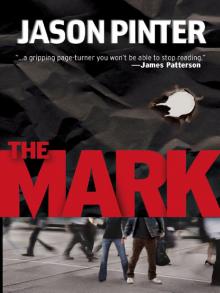 The Mark hp-1
The Mark hp-1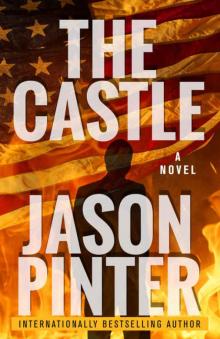 The Castle: A Ripped-From-The-Headlines Thriller
The Castle: A Ripped-From-The-Headlines Thriller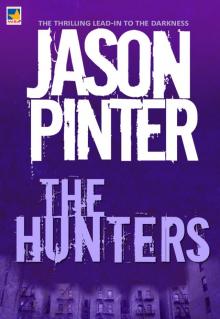 The Hunters (henry parker)
The Hunters (henry parker)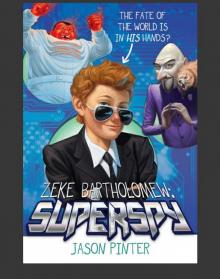 Zeke Bartholomew
Zeke Bartholomew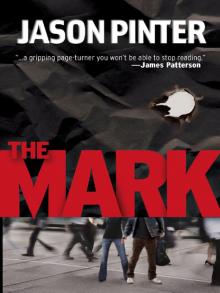 The Mark
The Mark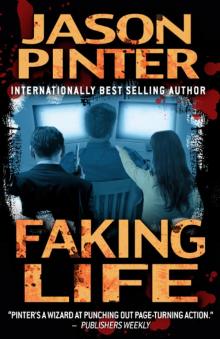 Faking Life
Faking Life![[Henry Parker 01.0] The Mark Read online](http://i1.bookreadfree.com/i2/04/08/henry_parker_01_0_the_mark_preview.jpg) [Henry Parker 01.0] The Mark
[Henry Parker 01.0] The Mark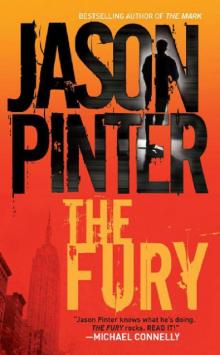 The Fury hp-4
The Fury hp-4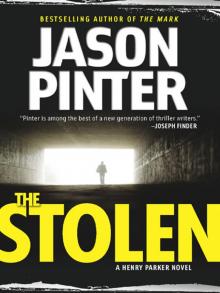 The Stolen
The Stolen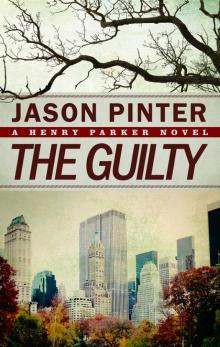 The Guilty
The Guilty